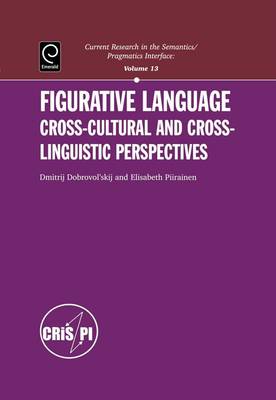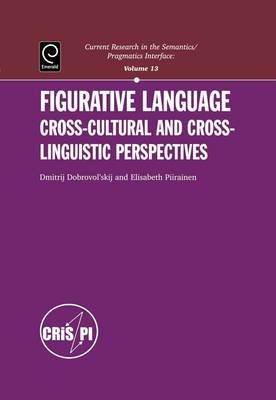
- Afhalen na 1 uur in een winkel met voorraad
- Gratis thuislevering in België vanaf € 30
- Ruim aanbod met 7 miljoen producten
- Afhalen na 1 uur in een winkel met voorraad
- Gratis thuislevering in België vanaf € 30
- Ruim aanbod met 7 miljoen producten
Zoeken
Figurative Language: Cross-Cultural and Cross-Linguistic Perspectives
Dmitrij Dobrovol'skij, Elisabeth Piirainen
€ 230,45
+ 460 punten
Omschrijving
The aim of this study is to discover basic principles underlying linguistic figurativeness and to develop a theory that is capable of capturing conventional figurative language (referred to as CFLT, i.e. Conventional Figurative Language Theory). The rich empirical data analysed for this publication include, among other things, idioms, proverbs, lexicalised metaphors, and figurative compounds, drawn from ten standard languages with widely different genetic relationships and/or cultural backgrounds (English, German, Dutch, Swedish, French, Russian, Lithuanian, Greek, Finnish, Japanese) and one Low German dialect.
The main topic of this work is the relationship between the figurative meaning of a lexical unit and the mental images that form its conceptual basis. Using a cognitive approach, the study deals with the central question of what types of knowledge are involved in creating motivating links between these two conceptual levels of figurative units. Of all the possible types of knowledge relevant to conventional figurative language, so-called "cultural knowledge" can be shown to be crucial. As a consequence, CFLT has to include elements of cultural semiotics and other culture-related disciplines.
The main topic of this work is the relationship between the figurative meaning of a lexical unit and the mental images that form its conceptual basis. Using a cognitive approach, the study deals with the central question of what types of knowledge are involved in creating motivating links between these two conceptual levels of figurative units. Of all the possible types of knowledge relevant to conventional figurative language, so-called "cultural knowledge" can be shown to be crucial. As a consequence, CFLT has to include elements of cultural semiotics and other culture-related disciplines.
Specificaties
Betrokkenen
- Auteur(s):
- Uitgeverij:
Inhoud
- Aantal bladzijden:
- 432
- Taal:
- Engels
- Reeks:
- Reeksnummer:
- nr. 13
Eigenschappen
- Productcode (EAN):
- 9780080438702
- Verschijningsdatum:
- 22/02/2005
- Uitvoering:
- Hardcover
- Formaat:
- Genaaid
- Afmetingen:
- 161 mm x 231 mm
- Gewicht:
- 798 g

Alleen bij Standaard Boekhandel
+ 460 punten op je klantenkaart van Standaard Boekhandel
Beoordelingen
We publiceren alleen reviews die voldoen aan de voorwaarden voor reviews. Bekijk onze voorwaarden voor reviews.











